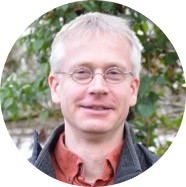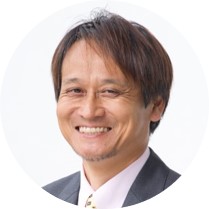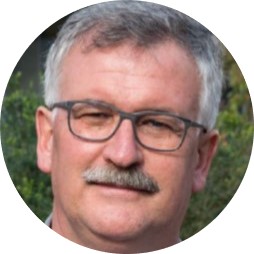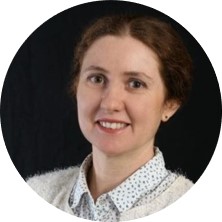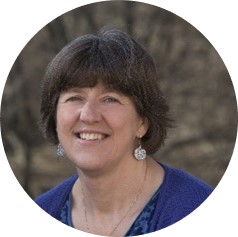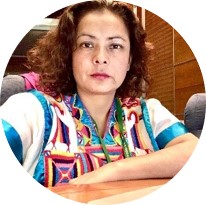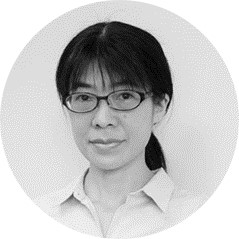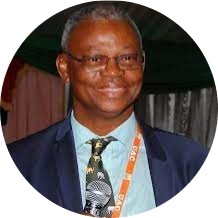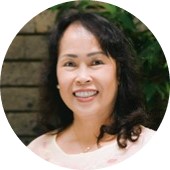
Land Webinar | Cultural Landscapes: Old and New Challenges for Sustainability
Part of the Land Webinar Series series
13 May 2021, 12:00
Land Management, Landscape, Cultural Landscapes, Landscape sustainability
Webinar Information
1st Land Webinar
Cultural Landscapes: Old and New Challenges for Sustainability
Date: 13 May 2021
Time: 12.00pm CEST | 6.00am EDT | 6.00pm CST Asia
Webinar ID: 928 5895 2258
Webinar Secretariat: land.webinar@mdpi.com
Chairs: Prof. Dr. Stefan Hotes & Prof. Dr. Tomohiro Ichinose
The following experts will present and talk:
|
Prof. Dr. Stefan Hotes, Laboratory of Applied Landscape Ecology, Chuo University, Tokyo, Japan |
Stefan Hotes studies how ecosystems and people interact, focusing on wetlands, agricultural areas and forests. The purpose of the research is to find sustainable development pathways for cultural landscapes that take the resilience of social-ecological systems into account. Prof. Dr. Hotes heads the Laboratory of Applied Landscape Ecology at the Faculty of Science and Engineering, Chuo University, Tokyo, Japan |
|
Prof. Dr. Tomohiro Ichinose, Faculty of Environment and Information Studies, Keio University, Fujisawa, Japan |
Tomohiro Ichinose conducts research on ecological network planning methods in cities, landscape changes in suburban and rural areas, depopulation and ageing problem in remote areas of Japan. He is professor at the Faculty of Environment and Information Studies, Keio University, Shonan Fujisawa Campus, Fujisawa, Japan. |
|
Prof. Dr. Josef Settele, Department of Conservation Biology and Social-Ecological Systems, UFZ – Helmholtz Centre for Environmental Research, Halle, Germany |
Josef Settele focuses on the interface of land use, climate and biological diversity. He was co-chair of the Global Assessment of IPBES, contributed to the IPBES Asia-Pacific and Pollination Assessments, and he was Coordinating Lead Author of the 5th Assessment Report of Intergovernmental Panel on Climate Change - IPCC. Prof. Dr. Settele heads the Department of Conservation Biology and Social-Ecological Systems at the UFZ – Helmholtz Centre for Environmental Research in Halle/Germany, and is professor of ecology at the Martin-Luther-University of Halle-Wittenberg. |
|
Dr. Flore Lafaye de Micheaux, IUCN Secretariat, Switzerland |
Flore Lafaye de Micheaux has +20 year experience in sustainable development policies, focusing on water and flood management as well as ecosystem restoration. She holds a PhD in Political Ecology (University of Lausanne) and has worked in Ethiopia, France and India. Dr. Lafaye de Micheaux is IPBES Programme Officer at the IUCN Secretariat in Switzerland where she is in charge of strengthening science-policy interfaces for biodiversity through the IUCN-IPBES strategic partnership. She has played a key role in the formalization of the open-ended network of IPBES Stakeholders (ONet). |
|
Prof. Dr. Marie Stenseke, School of Business, Economics and Law, University of Gothenburg, Sweden |
Marie Stenseke focuses on biodiversity, nature conservation and landscape management from a social science perspective. Marie is also co-chair of the Multidisciplinary Expert Panel of IPBES. She led the initiative to create the Social Sciences and Humanities Network within the open-ended network of IPBES Stakeholders (ONet). Marie is a full professor in human geography and deputy dean at the School of business, economics and law, University of Gothenburg, Sweden. |
|
Ms. Yesenia Hernández, NGO “Rueda de Medicina”
|
Yesenia Hernández works on biocultural protocols and territory governance for indigenous peoples and local communities. Her presentation focuses on biocultural landscapes and biocultural protocols as a tool for understanding and protecting local knowledge about landscape management and particular species. Dr. Hernández is affiliated with the NGO “Rueda de Medicina” as well as several UN organizations including IPBES, the UNESCO World Heritage Convention and the Women and Biodiversity Caucus of the Convention on Biological Diversity. |
|
Dr. Maiko Nishi, International Satoyama Initiative, United Nations University Institute for the Advances Study of Sustainability |
Maiko Nishi studies social-ecological system governance, local and regional planning and agricultural land policy. In particular, her interest lies in multi-level governance, landscape approaches, land tenure and use, and subjectivities of institutional actors in governing natural resources. Dr. Nishi works as a research fellow for the International Satoyama Initiative at United Nations University Institute for the Advanced Study of Sustainability (UNU-IAS). |
|
Prof. Dr. Brice Sinsin, Laboratory of Applied Ecology, University of Abomey-Calavi, Republic of Benin |
Brice Sinsin studies the link between Protected Areas (PA) gazettment issues and local communities who claim rights as key actors in the process of management of PA established in their localities, and so far their ownership as first beneficiaries of the related job opportunities even if PAs are of national concern. Prof. Dr. Sinsin is the Director of the Laboratory of Applied Ecology, University of Abomey-Calavi, Republic of Benin. |
|
Prof. Dr. Damasa Macandog, Institute of Biological Sciences, University of the Philippines Los Baños |
Damasa Macandog conducts research on land use change and its impacts on biodiversity and hydrologic balance, biodiversity information systems, ecological carrying capacity of freshwater lakes, mangrove ecosystem services in coastal hazard mitigation and marine plastic litter. Damasa is professor of Plant Ecology, Institute of Biological Sciences, University of the Philippines Los Baños. |
Program
|
Segment |
Contents |
Speaker |
Time in CEST |
|
Introduction |
Cultural Landscapes: Science, Policy and Practice |
Stefan Hotes & Tomohiro Ichinose |
12h00 |
|
IPBES Assessments |
Cultural Landscapes From the Perspective of the IPBES Global Assessment |
Josef Settele |
12h10 |
|
IPBES Stakeholder Networks |
Building the Open-Ended Network of IPBES Stakeholders |
Flore Lafaye de Micheaux & Marie Stenseke |
12h35 |
|
The role of local knowledge for the management of cultural landscapes |
Biocultural Protocols to Help In Protecting Local Knowledge About Landscape Management and Particular Species |
Yesenia Hernández |
12h45 |
|
Experiences from the Satoyama Initiative |
Working With Stakeholders to Maintain Cultural Landscapes - A Decade of Efforts by the Satoyama Initiative |
Maiko Nishi |
12h55 |
|
The role of social structure for the management of cultural landscapes |
Impact of Historical Cultural Landscape Ownership on the Management of National Protected Areas in West Africa |
Brice Sinsin |
13h05 |
|
Scientific base for sustainable cultural landscapes in the Philippines |
Applying Scientific Knowledge for the Sustainable Management of Cultural Landscapes - The Case of the Muyong-Payoh System in the Ifugao Region of Luzon, Philippines |
Damasa Macandog |
13h15 |
|
Discussion among the speakers |
Can Modern Lifestyles Support Traditional Landscapes? |
Facilitators: Flore Lafaye de Micheaux & Stefan Hotes |
13h25 |
|
Summary & opportunities for further engagement |
Summary & Outlook |
Flore Lafaye de Micheaux, Maiko Nishi & Stefan Hotes |
13h55 |
Webinar Content
On Thursday, 13 May 2021, MDPI and the Journal Land organized the 1st Webinar on Land, entitled "Cultural Landscapes: Old and New Challenges for Sustainability". This online seminar was chaired by Prof. Dr. Stefan Hotes, Chuo University, Japan, and by Prof. Dr. Tomohiro Ichinose, Keio University, Japan. Worrld-wide speakers gave their vision on how scientific information together with traditional and local knowledge can contribute to sustainable solutions to the multiple challenges for cultural landscapes.
The first speaker to kick-off the webinar was Dr. Marie Stenseke, on behalf of Prof. Dr. Josef Settele, and presented IPBES Assessments. Next, she and Dr. Flore Lafaye de Micheaux covered the topic of IPBES Stakeholder Networks. The third speaker was Yesenia Hernández and presented the role of local knowledge for the management of cultural landscapes in Mexican indigenous communities. Then, Dr. Maiko Nishi shared experiences from the Satoyama Initiative. Prof. Dr. Brice Sinsin followed and presented the role of local knowledge for the management of cultural landscapes in West Africa. Finally, Prof. Dr. Damasa Macandog showed how scientific knowledge is applied for sustainable cultural landscapes in the Philippines.
The webinar was offered via Zoom and required registration to attend. The full recording can be found below. In order to stay updated on the next webinars on Land, be sure to sign up for our newsletter by clicking on “Subscribe” at the top of the page.




